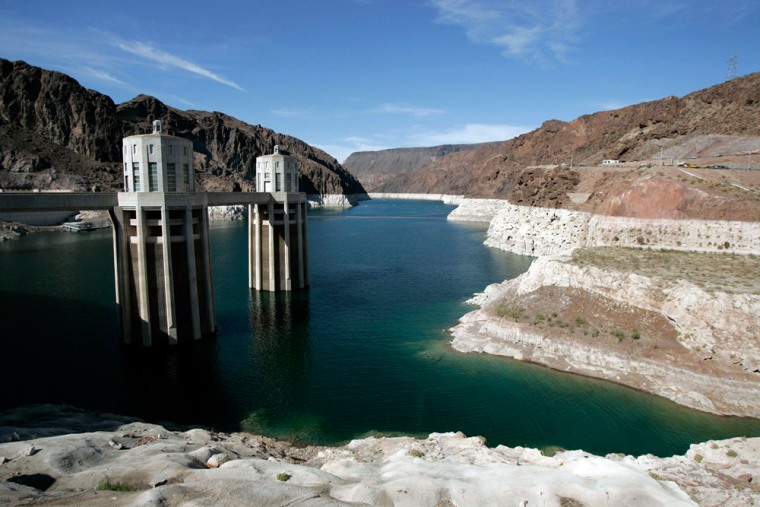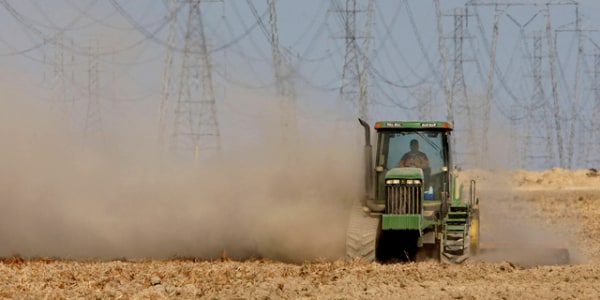In the strongest language on climate change ever to come out of the White House, the Obama administration on Tuesday released a 190-page assessment of documented and expected impacts across the United States.
"This report provides the concrete scientific information that says unequivocally that climate change is happening now and it's happening in our own backyards and it affects the kind of things people care about," Jane Lubchenco, head of the National Oceanic and Atmospheric Administration, said at a White House briefing.
"We need to act sooner rather than later," she added. NOAA was among the key contributors to the document.
The White House document — a climate status report required periodically by Congress — contains no new research. But it focuses and organizes what's been covered in numerous scientific journals and piecemeal federal studies to paint a more cohesive, bigger and darker picture of warming in the United States.
The report has chapters examining the effects of warming in nine regions and across seven sectors, ranging from health to transportation problems.
The "major disruptions" already taking place will only increase as warming continues, the authors wrote. They project the average U.S. temperature could rise by as much as 11 degrees Fahrenheit by 2100.
"Thresholds will be crossed, leading to large changes in climate and ecosystems," the study said in one of its key findings, adding that it could affect the survival of some species.
For example in the past few decades, winters in parts of the Midwest have warmed by several degrees and the time without frost has grown by a week, according to the report.
Evidence 'much stronger'
"We're already seeing impacts across the nation," said co-author Virginia Burkett, coordinator of global change science at the U.S. Geological Survey. "The evidence is much stronger than it has been."
Slideshow 15 photos
California's water woes
"How severe these impacts will be is largely in our hands," added Jerry Melillo, a lead author of the report.
The scientists softened the report from an earlier draft that said "tipping points have already been reached and have led to large changes." Melillo said that is because some of the changes seen so far are still reversible.
Even so, Tom Karl of the National Climatic Data Center said that at least one tipping point — irreversible sea level rise — has been passed.
The report emphasized that water, either too much or too little, will continue to be a major problem in every region of the country.
"Water permeates this document," Burkett said. She said the U.S. Southwest will get drier and hotter and that will be a crucial issue.
"Water is going to be a tremendous challenge for energy," added Melillo, referring to generating electricity from dams and nuclear power plants, which use vasts amounts of water to cool reactors.
White House science adviser John Holdren said the findings follow "many years of dithering and delay" and make the case for taking action — both by reducing emissions and adapting to the changes that "are no longer avoidable."
Environmental activists echoed that view, urging lawmakers to pass legislation to curb greenhouse gas emissions and promote cleaner energy sources.
"This is the clearest of wake up calls — climate change is here and the time for action is now," World Wildlife Fund President Carter Roberts said in a statement.
Scott Segal, a Washington lobbyist for the coal industry, was more cautious: "Fast action without sufficient planning is a route to potential economic catastrophe with little environmental gain."
Federal law requires comprehensive reports on global warming's effects every four years. The Center for Biological Diversity sued to force the Bush administration to issue an early draft of this report last summer because one had not been written since 2000. Since that time, the language has become stronger, but mostly because of fresher research, scientists said.
The full report is online at http://globalchange.gov/.

